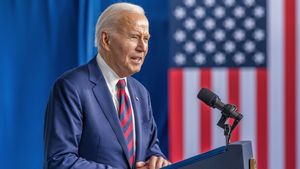This week kicks off the American Library Association’s National Library Week, a celebration of librarians, libraries, and the valuable role they play in our communities.
The annual event started in 1957 after research revealed that Americans were spending more money and time on radios, television, and movies, than on books or at their libraries. This year’s theme is “There’s More to the Story” — a perfect sentiment after 2022 saw a record number of book bans.
Since the ALA started tracking book bans and attempted book bans more than 20 years ago, 2022 was a record year, with 2,571 unique titles challenged by parents, patrons, and other organizations — a 138 percent increase over 2021.
“ALA began documenting the book challenges reported to us over two decades ago because we want to shine a light on the threat of censorship facing readers and entire communities, a threat that is at the highest we’ve ever seen,” ALA President Lessa Kanani’opua Pelayo-Lozada told The Advocate Channel.
The ALA’s Office for Intellectual Freedom (OIF) has been collects data about book challenges for over 20 years, documenting how book bans affect readers, communities, and the library profession. Since the fall of 2020, OIF has noticed a startling trend: the number of titles being challenged is ticking upwards, and they are being challenged in groups of titles — not by a single parents who wants to remove a book they discovered their child reading, as was typically the case in years past.
“These numbers — and the list of the Top 13 Most Challenged Books of 2022 — are evidence of a growing, well-organized, political movement whose goals include removing books addressing race, history, gender identity, sexuality, and reproductive health from America’s public libraries and school libraries that do not meet their approval. Using social media and other channels, these groups distribute booklists to their local chapters and individual adherents who then utilize the lists to initiate a mass challenge that can empty the shelves of a library,” said Deborah Caldwell-Stone, Director of OIF, via email.
In addition to the challenges to titles, the rise in attacks on books has seen an unprecedented rise in attacks on libraries themselves. Through social media harassment, doxing, and physical protests, librarians are being threatened due to misguided political organizing that undermines the democratic fabric of our nation.
“Our nation cannot afford to lose the library workers who lift up their communities and safeguard our First Amendment freedom to read. Libraries work because library workers do and they areas essential to library spaces as the books, programs, and other services we provide for the community,” added Pelayo-Lozada.
2022’s number one most-challenged title was Maia Kobabe’s Gender Queer, a coming of age memoir written as a graphic novel. Initially intended to explain to Kobabe’s family, as well as their experience of being non-binary and asexual, Gender Queer is a gentle and enlightening guide for anyone curious about gender and sexuality.
- Anne Frank Book Pulled From Florida Schools Over Scenes Featuring Attraction to Women ›
- Florida School Libraries Emptied to Comply With State Book Bans, Images Show ›
- LGBTQ+ Book Bans: Pen America Director Jonathan Friedman Shares How We Can Fight Back ›
- Librarians Now Face Prison For Distributing Banned Books | AdvocateChannel.com ›
- Florida School Restricts Access to Amanda Gorman's Inaugural Poem | AdvocateChannel.com ›



















































